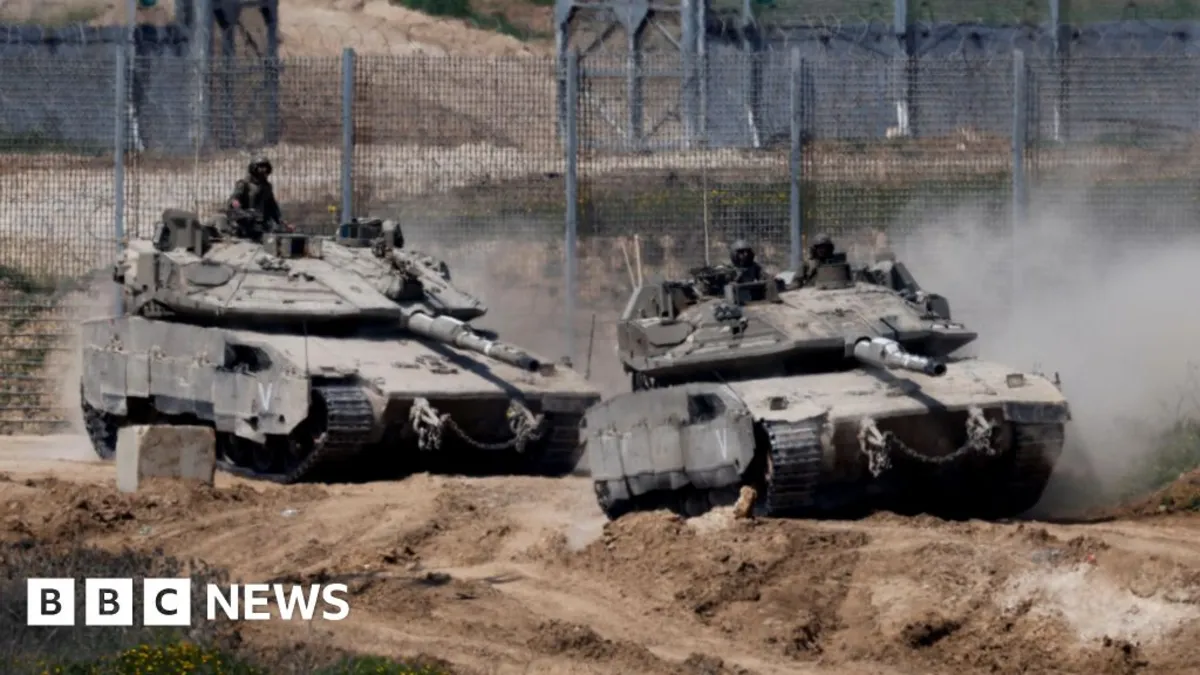
In a decisive move, Israel's security cabinet has approved a comprehensive plan to escalate its military offensive against Hamas, with intentions to capture and maintain control over Gaza. This strategic decision comes as the Israeli military prepares to mobilize tens of thousands of reservists, intensifying efforts to exert pressure on Hamas with the dual objectives of securing the release of remaining Israeli hostages and dismantling Hamas's operational capabilities.
Reports suggest that the implementation of this military plan will be postponed until after US President Donald Trump's visit to the region, scheduled for next week. Amidst the military preparations, the cabinet has also provisionally agreed to resume humanitarian aid deliveries through private companies, potentially lifting a two-month blockade that the United Nations has warned has led to critical food shortages in Gaza.
During a pivotal meeting on Sunday evening, Prime Minister Benjamin Netanyahu's security cabinet unanimously voted to gradually expand ground operations over several months. This expansion follows the end of a two-month ceasefire on March 18. The initial phase of the offensive is expected to involve capturing additional territories in Gaza and enlarging the Israeli-designated buffer zone along the borders with Israel and Egypt. This strategic move aims to enhance Israel's negotiating position regarding a new ceasefire and the release of hostages.
According to an Israeli official cited by the Haaretz newspaper, Netanyahu has indicated that this expanded offensive marks a significant shift from previous operations. Instead of relying on short-term raids, the focus will be on the occupation of territory and establishing a sustained Israeli presence within Gaza. Security cabinet member Zeev Elkin expressed optimism about the potential for a new hostage release prior to President Trump's upcoming trip, stressing the importance of conveying seriousness in negotiations with Hamas.
During a recent visit to a naval base, Lieutenant General Eyal Zamid, the Chief of Staff of the Israeli military, announced that tens of thousands of reservists are being called up to bolster operations in Gaza. Zamid emphasized the military's objectives, stating, "We are increasing the pressure with the aim of bringing our people home and defeating Hamas." He confirmed that operations would expand into additional areas, with a focus on dismantling all forms of terrorist infrastructure, both above and below ground.
Despite the military's assertions, critics argue that this approach is ineffective, as no hostages have been released since the offensive resumed six weeks ago. The Hostages and Missing Families Forum, which represents families of the hostages, criticized the government's prioritization of territorial gains over the lives of hostages, claiming this stance contradicts the wishes of over 70% of the Israeli population.
An Israeli political source revealed to AFP that the security cabinet also discussed the possibility of a humanitarian distribution plan, aimed at preventing Hamas from controlling aid supplies and undermining its governance capabilities. On the same day, the Humanitarian Country Team (HCT), which includes various UN agencies, voiced concerns over Israeli officials' intentions to disrupt existing aid distribution systems. They reported that Israel seeks to deliver supplies via Israeli-controlled hubs, contingent upon the reopening of border crossings.
The HCT highlighted that this proposed plan could exacerbate the suffering of vulnerable populations in Gaza, leaving many without essential supplies. They warned that the approach violates fundamental humanitarian principles and appears to serve as a military pressure tactic. This strategy could endanger civilians, including humanitarian workers, by forcing them into militarized zones to access rations, thereby increasing the risk of forced displacement.
On March 2, Israel halted all humanitarian aid deliveries to Gaza, just two weeks prior to resuming its military offensive. The UN has stated that Israel is obligated under international law to ensure the supply of aid to the 2.1 million Palestinians in Gaza, a majority of whom have been displaced due to ongoing conflict. In response, Israel maintains it is complying with international law and insists there is no shortage of aid supplies.
The Israeli military's intensified campaign against Hamas was triggered by an unprecedented cross-border attack on October 7, 2023, resulting in approximately 1,200 deaths and 251 hostages taken. Since the resurgence of hostilities, the Hamas-run health ministry in Gaza reports that at least 52,535 people have lost their lives in the territory.